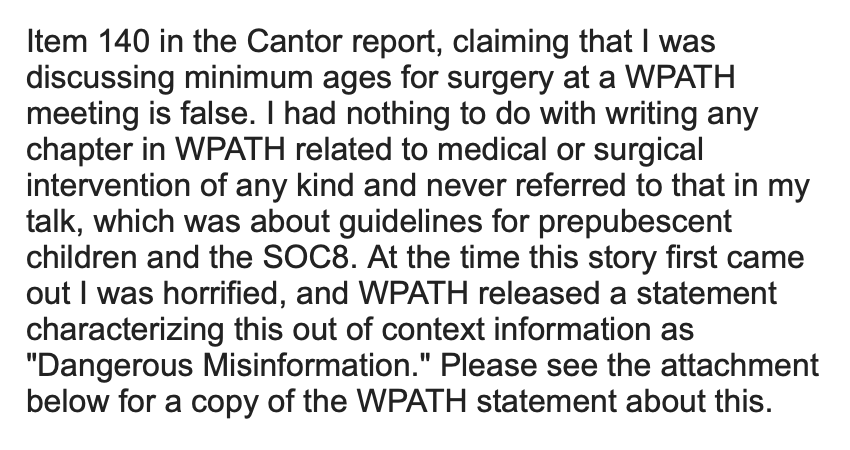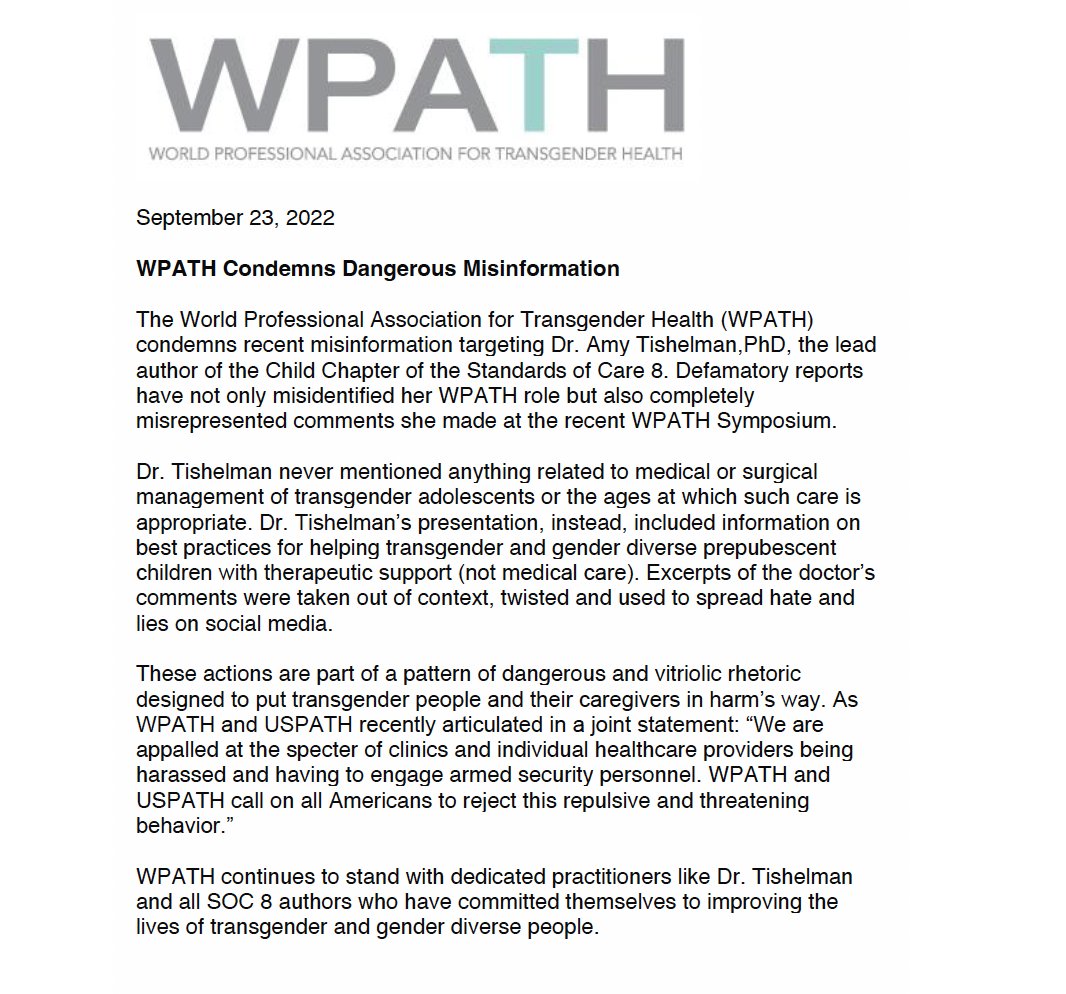‘Damning’ Information About Trans Medical Group Expected To Reach Supreme Court, as Justices Consider Challenge to Ban on Gender Treatments for Minors
🧵⬇️I report for the @NewYorkSun: Unsealed internal communications from the trans medical organization @WPATH will likely undermine pediatric gender-transition treatment in litigation, including a Supreme Court case.
🧵⬇️I report for the @NewYorkSun: Unsealed internal communications from the trans medical organization @WPATH will likely undermine pediatric gender-transition treatment in litigation, including a Supreme Court case.

‘Damning’ Information About Trans Medical Group Expected To Reach Supreme Court, as Justices Consider Challenge to Ban on Gender Treatments for Minors
nysun.com/article/damnin…
nysun.com/article/damnin…
The World Professional Association for Transgender Health is tasked with promoting and defending access to gender-transition treatment for minors. Amid a storm of litigation over these practices @WPATH’s leaders now find that their own words threaten to undermine this mission.
Last month, a federal court began unsealing an abundance of subpoenaed internal communications among top @WPATH members. The docs concern Wpath’s recent revision of the chapters in its trans-medical-care guidelines concerning pediatrics, or medical care for children and teens. 

Wpath’s once-secret maneuverings, now laid bare, have only just begun to backfire. The explosive contents of the unsealed communications are expected to impact the litigation that will determine the future of pediatric gender medicine , including a SCOTUS ruling next term.
Erica Anderson, a psychologist, transgender woman, and former head of Wpath’s American branch, characterized the recent disclosures as “damaging” to @WPATH. @eanderh nysun.com/article/damnin…


Why did @WPATH remove all the age limits on pediatric gender-transition treatment in its 2022 revision on its treatment guidelines? Internal comms unsealed in an AL court case suggest HHS official Rachel Levine, the @AmerAcadPeds and @Trevor_Project all pressured WPATH to do so. 

Even as she pressured @WPATH to remove age limits on pediatric gender-transition treatment for political reasons, Rachel Levine touted WPATH as the go-to source for evidence-based guide to such care and said that laws banning such treatment were all politically based. 

WPATH published its new transgender treatment guidelines on Sept. 10, 2022, and later that same day removed the age limits on pediatric gender-transition treatment. This was in the immediate wake of the @AmerAcadPeds and the @Trevor_Project pressuring them to do so. 

The documents unsealed in the Alabama court case that have so damaged @WPATH's credibility as a science-based organization removed from politics have already started to show up in litigation.
nysun.com/article/damnin…

nysun.com/article/damnin…

In private, at least some @WPATH members have acknowledged that the evidence behind some of their treatment recommendations is wanting. But in public the organization has said the opposite. nysun.com/article/damnin…


Eli Coleman, who headed up @WPATH's revision of its treatment guidelines, issued a full-throated denial of the suggestions of a trove of internal communications from the organization that were recently unsealed. nysun.com/article/damnin…


How might the unsealed @WPATH communications impact the Supreme Court case about Tennessee's pediatric gender-transition ban next term? I spoke with TN's attorney general, Jonathan Skrmetti, for the @NewYorkSun: nysun.com/article/damnin…


The internal @WPATH documents are also expected to aid the plaintiffs in the approximately 20 medical-malpractice lawsuits waged by detransitioners against their former care providers. 

The unsealed @WPATH communications are expected to aid in the conspiracy suit against the @AmerAcadPeds. One WPATH member was particularly scornful of the AAP's 2018 policy statement on the gender-affirming care method. nysun.com/article/damnin…


Roger Brooks of the Alliance Defending Freedom said he expected the Alabama documents would have an even greater impact on future detransitioner lawsuits, by undermining physicians’ arguments that they were acting in good faith by following WPATH’s guidelines.
Psychologist Erica Anderson, who positioned herself as WPATH’s Cassandra some years ago, having sought to warn her colleagues that they were steering the organization in a perilous direction, reflected over what it has meant to have, as she sees it, been proved right.
“Many who know of my historic efforts to stem the tide of ideology have proclaimed that I should feel vindicated, but I cannot be consoled,” Dr. Anderson said.
“I am heartsick.”
nysun.com/article/damnin…
“Many who know of my historic efforts to stem the tide of ideology have proclaimed that I should feel vindicated, but I cannot be consoled,” Dr. Anderson said.
“I am heartsick.”
nysun.com/article/damnin…

The internal @WPATH communications in the Alabama suit over the state's pediatric gender-transition treatment ban also suggested that WPATH coordinated on the drafting of its 2022 trans-care guidelines update with the @ACLU, which is behind many of the lawsuits seeking to overturn the bans of the treatment that WPATH recommended in those guidelines. nysun.com/article/damnin…

Here is my coverage for the @NewYorkSun about the detransitioner lawsuit against the @AmerAcadPeds: nysun.com/article/lawsui…
@NewYorkSun @AmerAcadPeds
https://twitter.com/benryanwriter/status/1806753484114481646
@NewYorkSun @AmerAcadPeds
https://twitter.com/benryanwriter/status/1806257503966994654
@NewYorkSun @AmerAcadPeds
https://twitter.com/benryanwriter/status/1805440452729995398
• • •
Missing some Tweet in this thread? You can try to
force a refresh


















